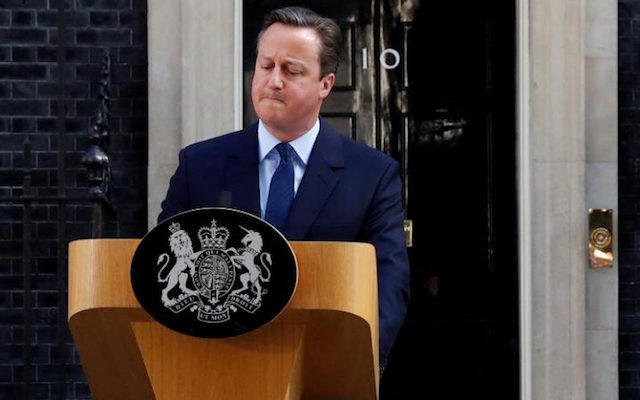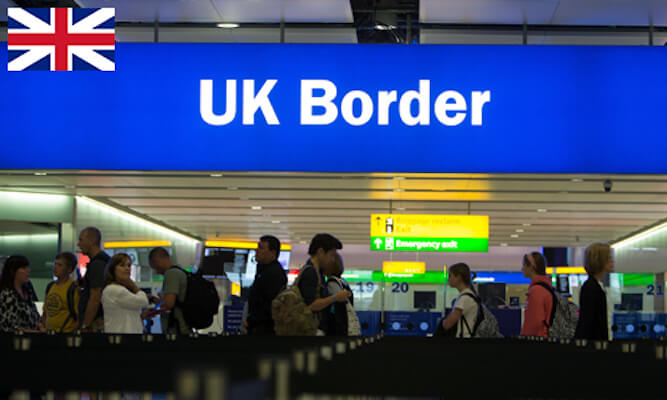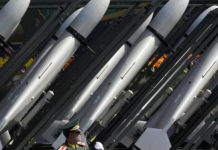By Charles Woolfson
In a timely essay in Defend Democracy Press in the aftermath of Brexit, the great Egyptian scholar, Samir Amin, addresses the key issue of what is meant by ‘national sovereignty’ by posing the question: National sovereignty: for what purpose? (1). At first glance, ‘national sovereignty’ in an age of globalizing economic forces may seem something of an anachronism. Amin however makes the important distinction between what he terms a national ‘sovereignty…in the service of…financialized monopolies’ and what by contrast, is a ‘positive nationalism’, within a ‘framework defined by the (“nation”) State’. The nation state, is still the key arena where the ‘decisive struggles that transform the world unfold’.
A ‘positive nationalism’, therefore, in contrast to insular reactionary nationalism, is both ‘popular’ and ‘democratic’. Its content is defined against, in the first instance, national ruling elites and involves ‘decisive struggles’ for democratic rights. Such struggles also have the inherent potential to interlink with other national struggles of a similar democratic and popular nature. So understood, internationalism is therefore part and parcel of asserting a different kind of ‘national sovereignty’. This narrative of ‘reclaiming’ national sovereignty as a ‘project that is popular, social and democratic’ offers a more nuanced understanding perhaps of why many in the UK voted to leave the European Union in the referendum of June 2016.
The Brexit vote is emphatically characterised as a vote for closing borders against ‘foreigners’. This entails ending the European Union’s mandatory requirement for all member states to accept ‘free movement of persons’ with the right to live and work in any member state. Control over who enters, who leaves, who has the right to remain and under which conditions is, of course, the most fundamental marker of national sovereignty. Free movement of persons in this light can be seen as fundamentally undermining national sovereignty. The Brexit vote thus could be seen as an assertion of the desire to reclaim control over national borders, for mistaken reasons or otherwise. The referendum vote is an expression of opposition to the European Union perceived as a super-state which seeks to obliterate national borders. Yet to reassert the prerogatives of the nation state is not necessarily to embrace a reactionary nationalism which seeks to scapegoat foreigners, immigrants and non-nationals as the ‘Other’.
A democratic national politics stand in sharp opposition to the remote and supra-national European Union, and especially to the unelected and politically unaccountable European Commission, characterized in Amin’s words, as an ‘absolute denial of democracy’ and ‘incapable’ of reform. Prevailing austerity policies at a pan-European level serving the interests of ‘financialized monopolies’ were decisively rejected by many ‘Leave’ voters in the context of the U.K. where national elites, in the service of the City of London, have vigorously implemented their own ‘competitive austerity’ programmes since the global crash, under both Labour and Conservative-led coalitions.
In the backwash of the global financial and economic crisis, austerity at the behest of the European Commission and the European Central Bank, with the notable temporary exception of Greece, was willingly or otherwise implemented by national governments throughout the Eurozone area. Restoring the economic health of the European economy, simultaneously ruled out policies of industrial investment as well as state-led interventions that could generate jobs and growth. Thus, a rejection of the current European project is a rejection of ever-encroaching EU interventions in domestic policy decision-making and the grip of tight disciplinary fiscal powers which have eroded the economic independence of member states. The Brexit vote is therefore also about the desire to regain control over national economic direction and decision-making. In this reading, it aims at creating a more democratic form of national economic policy and more responsive democratic forums at national and regional levels (Scotland being a case in point), which ordinary people feel they have some say in, rather than being an expression of simple-minded ‘anti-immigrant’ sentiment.
Yet undoubtedly, the heart of the matter in the British referendum vote – the hinge issue – was the question of the free movement of labour to the UK from other European countries. Along with freedom of movement of capital, goods, and services, free movement of labour is a pre-condition for any member state of the European Union to have access to the single European market. It constitutes one of the four inviolable and foundational principles set out in the original 1957 Treaty of Rome establishing the European project. While free movement has never proved entirely unproblematic (the migration of Italians from the 1950s, and the migrations following the accession of Spain and Portugal in the 1980s).
Eastern enlargements, however, created unprecedented free movement, bringing problems that the European Union has not been able to resolve. The accession of eight new member states from the ex-socialist countries of the former Eastern bloc – Hungary, Slovakia, Czech Republic, Slovenia, Poland and the three Baltic states of Estonia, Latvia and Lithuania – in 2004, with Romania and Bulgaria following on in 2007 added populations to the European project with much weaker labour protections and poorer labour standards, in the backwash of rapid transition to free market economies.
In the aftermath of Brexit it is legitimate to ask therefore how far has the free movement of persons benefited the peoples of Europe? The answer is by no means straightforward and depends on which part of Europe is being talked about. The terms of accession to the EU of the post-communist states of Eastern Europe, implied a one-sided bargain — free movement of capital and labour but between economies of massively different potential and development. Their overall economic development, especially in the aftermath of the collapse of the Soviet Union, was at a much lower level than that of the West. The former Eastern bloc provided therefore, not only new markets for European capital, but also a ready, flexible and well-educated labour force. Eager to exercise new rights of mobility, this labour force could be tapped into as a huge ‘reserve army of labour’ to perform jobs at wages and under working conditions that, in the main, national workforces in Western European member states rejected.
As the first wave of ‘free movers’ got underway from the EU accession states in 2004 industrial relations problems quickly emerged in three Western European member states, Ireland, Sweden and the UK. These three countries had opted not to impose so-called ‘transitional arrangements’ in 2004 designed to limit the inflow of foreign labour onto their labour markets. For its part the European Commission offered very modest projections of the numbers who could be expected to arrive from Eastern Europe. These projections were soon to prove a serious underestimate as workers from the former socialist countries migrated westwards to take advantage of wages that in the case of the Baltic countries for example, were five times higher in Sweden than in Latvia. Each country permitting free movement in turn experienced bitter industrial disputes over what was termed ‘social dumping’ which provided a lightning rod for popular hostility to immigration from the new member states.
In Ireland, the first of these labour disputes in 2005 was aboard a vessel which sailed between Irish ports and the mainland of Britain, operated by the Irish Ferries company. The Irish Ferries management had smuggled Latvian and Lithuanian workers accompanied by security guards onto one ferry disguised as ‘passengers’ who then emerged on deck as the future low-cost replacement crew. This provoked the ship’s captain and officers to initiate an ‘anti-piracy’ secure lockdown which continued as an occupation in port for a protracted period involving two Irish Ferries vessels. For the Irish trade unions which had closely partnered with the national employers in obtaining the significant benefits in terms of jobs and investment that had accompanied European Union membership, this action by one of their own native employers was a profound shock. Less than a year after the dispute ended, the majority of the nearly 500 existing permanent unionized staff had been replaced by lower-cost foreign agency crews. The Seamen’s Union of Ireland (SUI) lost representation among the new workforce and the number of unionized onshore staff was also reduced by three-quarters, while Irish Ferries secured labour cost savings amounting to approximately 11.5 million euros per year.
In Sweden, almost the day after EU accession of the eight East European states in 2004, Latvian building workers arrived in a suburban area of Stockholm to carry out renovation work at an old military school. They were technically providing freedom of services through a Latvian daughter firm called Laval and Partners which had contracted out the workers at Latvian wages rather than those in the collective agreement between the building employers’ federation and the building workers trade union in the Stockholm region. When faced with such unwelcome incursions on the strongly union-regulated labour market, Swedish trade unions have traditionally resorted to a blockade of the worksite to force foreign employers to abide by Swedish collective agreements. In this case also, a blockade was mounted supported by other unions such as those representing electrical workers. The employer, Laval, who previous to this had employed his workers in Sweden under Swedish terms and conditions, now went to the Swedish labour court to contest the legality of the industrial action against his company, arguing that it constituted an illegal restriction of freedom of services and was in addition, discriminatory, both impermissible under European treaty law. Laval was financially supported by the Swedish employers keen to open up the Swedish labour market to foreign competition. The Swedish labour court, in turn, referred the matter to the European Court of Justice which interprets EU law. Their ruling was that the action indeed contravened European law.
This watershed decision in the so-called Laval case, together with three related rulings from the European Court, has done much to limit the right of national trade unions to determine the forms of industrial relations appropriate to their own conditions. The blatant interference of the Court into what were previously areas of domestic jurisdiction has sent shockwaves across the European trade union movement. In particular, the Laval ruling is seen as undermining one of the key pieces of protective legislation which the trade unions in Europe had put in place through negotiation with European employers to ensure that workers who moved across borders would not undermine locally existing terms and conditions, the so-called Posted Workers Directive. The European Court decision was widely interpreted as stimulating a ‘race to the bottom’ in labour standards within the European space.
In Britain, the issues posed by EU-mandated free movement came to a head in the Lindsey oil refinery dispute in Lincolnshire on the east coast of Britain in 2009. Unofficial strikes by union members began to spread across the UK in protest against a decision by an Italian firm, IREM, to use its employees (Portuguese and Italian) for construction work. UK trade unions complained that the subcontractor was ‘explicitly refusing to consider applications for work from domestic labour’ on the grounds that foreign workers could be supplied at a more competitive wage rate. Construction engineering workers across the UK refinery sector came out on strike holding up banners on picket lines demanding that the then Labour Prime Minister, Gordon Brown, honour his ill-judged populistic pledge to ensure ‘British jobs for British workers’.
These labour disputes occasioned by free movement of labour have emerged in quite regulated sectors of the national labour markets of the respective countries. However, the main inflows, particularly from Eastern Europe, have been to those sectors where trade union oversight of wages and conditions has traditionally been rather weak. In particular, hotels and restaurants, catering, care work, cleaning, transport and even construction have proved difficult for trade unions to organise. Here a significant amount of exploitation exists in the grey and black economies. ‘Informalised’ labour contracts and irregular and undocumented systems of wage payment can be found across the board in the very sectors which are difficult to regulate.
The reality is that many East European and other foreign workers have been recruited to precisely these areas of the labour market where their adaptability and willingness to work hard for comparatively low wages without complaining, are seen as very attractive for employers. In these sectors, it is difficult to find domestic labour forces at the low wages employers are prepared to pay, while the migrant workers although earning more than they would in their home countries, remain vulnerable and frequently condemned to exclusion in a segmented labour market. None of these developments portend well for the creation of decent jobs.
Even in Sweden, which has among the highest trade union density in Europe with over 70% of the workforce formally members of trade unions, the famous ‘Swedish model’ of orderly industrial relations bargaining is under severe strain, in part at least because of the availability of a competitor migrant workforce. Trade unions in Western Europe have found it hard, although not always impossible, to reach out to the new migrant workforces, in many cases comprising highly exploited short-term and temporary stay workers, with little experience of trade unionism and residual suspicions of such organisations due to their home-country association of trade unions with the former Soviet era.
Many on the Left in the UK are persuaded that European Union membership has provided tangible enhancements of workers’ rights. They have pointed to European-wide directives on working time, on employment protection in the event that companies acquire new owners, European company level works councils in large companies, health and safety provisions, equality and anti-discrimination directives, all of which are now terminally jeopardized by the vote to leave. Other voices, less heard, have argued that the reality is these progressive measures, emblematic of a ‘Social Europe’ in balancing market imperatives with social protection for workers, in many instances, have been systematically watered down in recent years in pursuit of a competitive de-regulated and ‘flexible’ European-wide labour market.
Basic issues of what kind of national sovereignty a post-Brexit Britain will assert, popular and democratic, or narrowly nationalist and xenophobic, remain to be resolved. Yet free movement need not lead to division and conflict based on xenophobia. In mid-July 2016, a full seven years after the rancorous Lindsey oil refinery episode, workers at the Fawley refinery in southern England conducted an official strike to ensure that Bulgarian and Italian contract workers on site were paid at the same rate and not at less than half the wage of their UK counterparts. Successful industrial action at Fawley ensuring fair wages for migrant workers, suggests that trade unions can play an important role at workplace level, and also in the wider community, in combating narrow nationalism in the emerging post-Brexit scenario. Brexit, for all the deeply problematic manifestations of anti-immigrant sentiment that have followed the referendum result, less so in Scotland perhaps than elsewhere in the UK, also potentially opens up the question of national sovereignty in quite a new way. It can offer a new arena in which ‘decisive’ progressive struggles can be conducted on behalf of both native and immigrant workers for decent work and against exploitation, racism and xenophobia.
(1) Samir Amin (2016) ‘Brexit and the EU implosion: National sovereignty: for what purpose?’, Defend Democracy Press, 16 July.
Charles Woolfson is professor emeritus of labour studies based at the Institute for Research in Migration, Ethnicity and Society (REMESO), the University of Linköping, Sweden where he has studied East-West migration since 2010. Prior to that date from 2000 onwards, he lived and worked in the Baltic states, conducting teaching and research, including three years as a Marie Curie Chair at the University of Latvia. Email: charles.woolfson@liu.se











